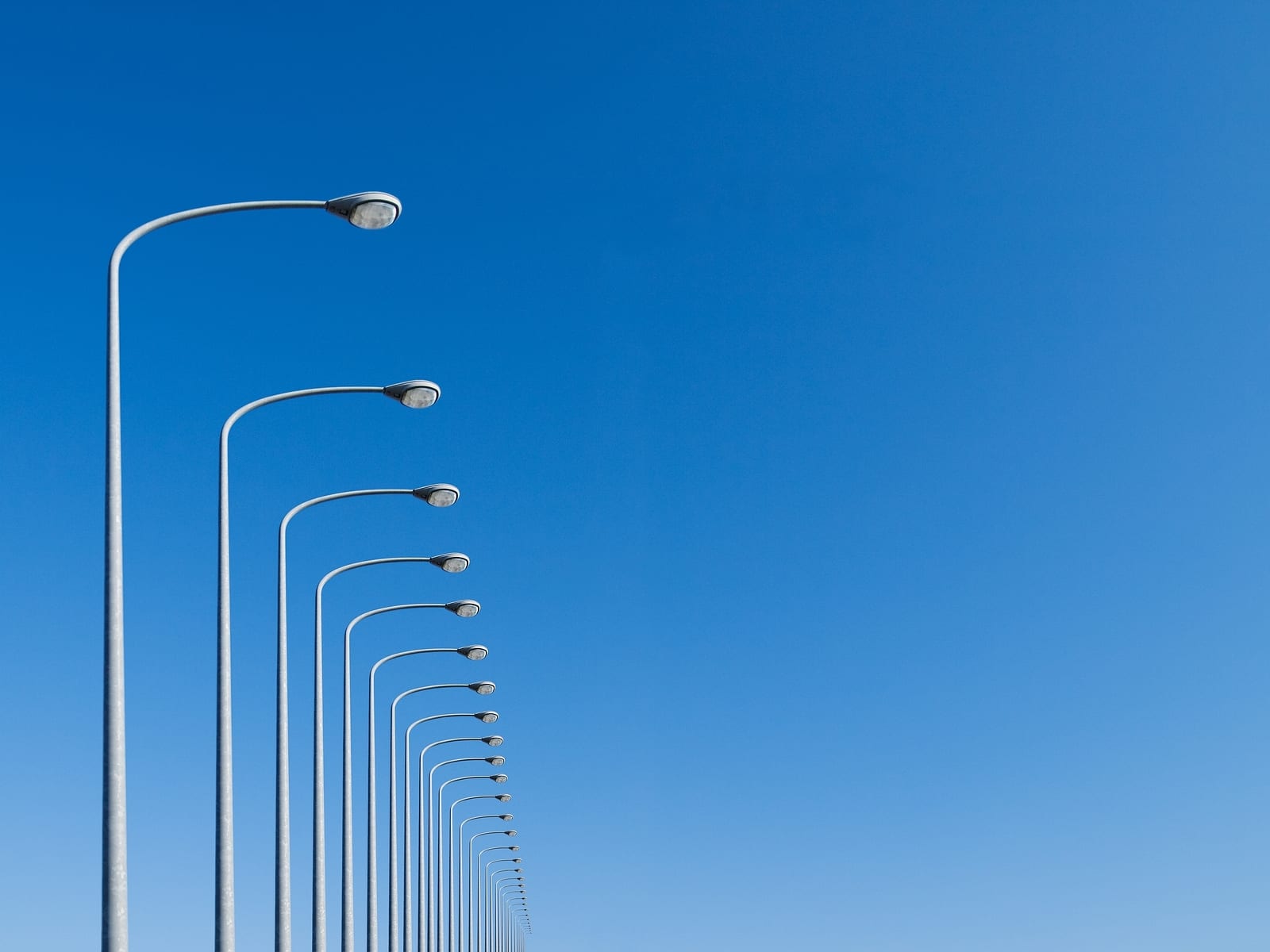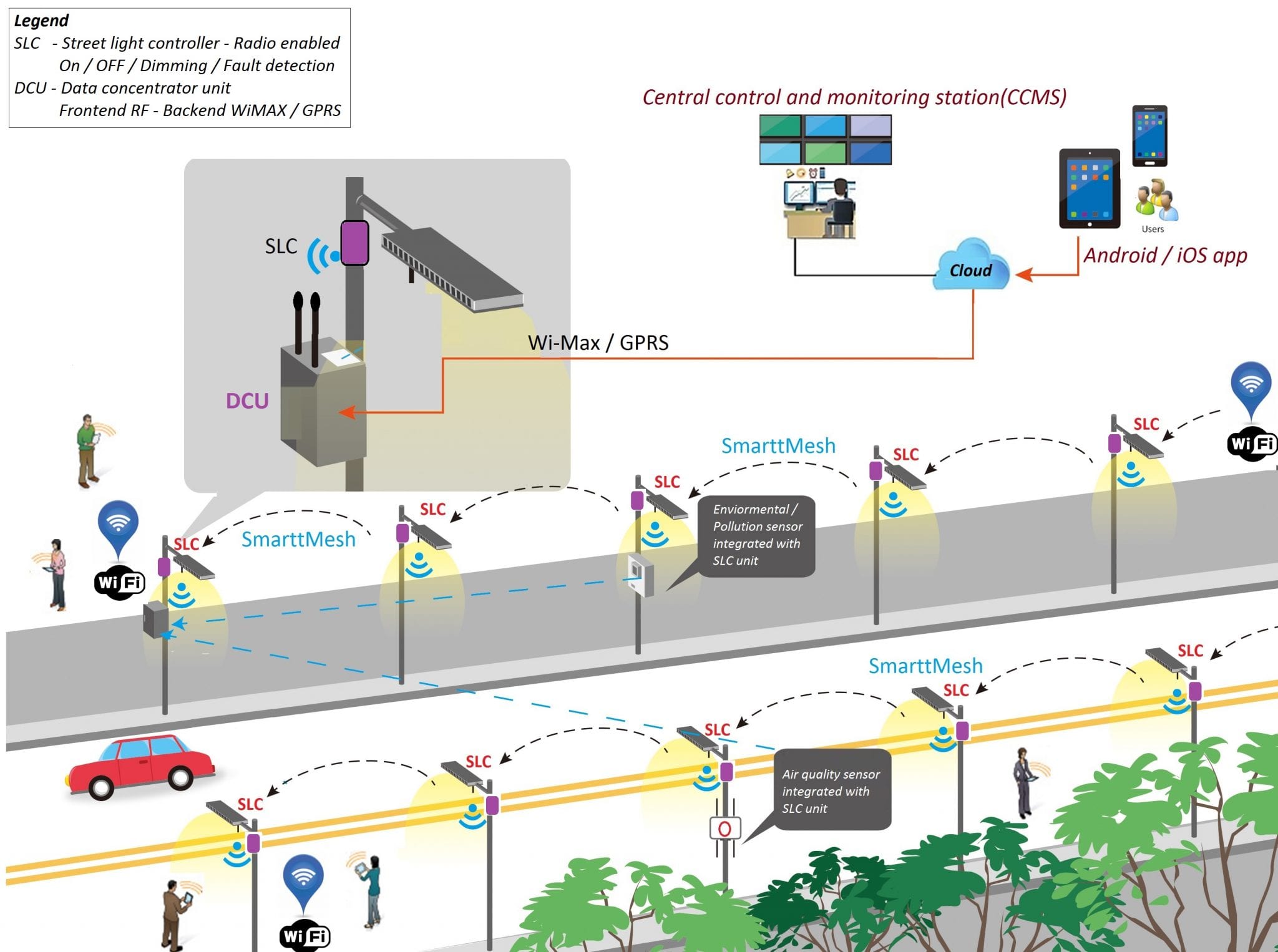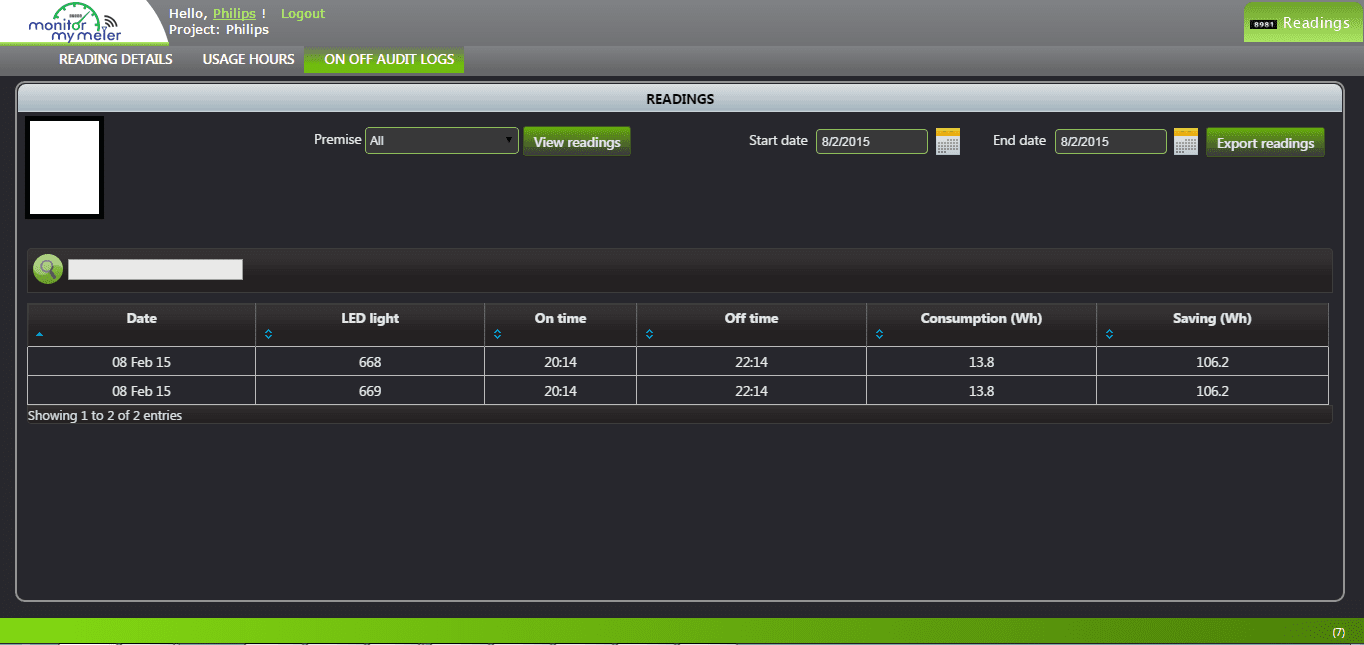Currently, more than 27 million street lights light up the nights in India. Most of these are CFL, metal halides or sodium vapor lights. Various sources place the demand of electricity for these street lights as anywhere between 20 to 40% of the energy produced in India.
Therefore, the government is looking to adopt LED technology to reduce the energy demand; but, exactly how the policies will help can only be told with detailed analytics.
The key problems:
Currently, street lighting in India faces many problems. Some of these are:
Faulty lights
Firstly, there is no baseline data to understand how many faulty lights are in the field. Next issue is that there is no data to understand which make of lights work or which don’t and their lifetime. There is a good chance that a particular manufacturer is not suitable for India, or that while a particular brand is cheap to acquire, they have a high failure rate. Thus, the lack of baseline data and analytics is leaving us in the dark, literally!
Electricity theft
Electricity theft is a huge problem in India. There is no data on the amount of electricity consumed by each light, or on a broader level, even how much a phase consumes; thus, there is no way of determining if there is a leak somewhere in the line.
However, this can be combated using analytics and an IoT based remote monitoring solutions, which will allow the government to find how much electricity is being siphoned off via illegal methods.
Unnecessary usage
Despite being an electricity deficient country, it is common to see street lights working even during the day. This leads to wastage of electricity. In order to understand how much energy is wasted, and how it can be stopped, analytics is needed, yet again.
The IoT solution
An IoT based solution that will keep track of which lights are working, and how much electricity they are consuming will work the best in such a scenario. The solution should have either phase wise control or individual light wise control in order to provide data for analytics. A single gateway device that can upload this data to the Internet, and operate the lights at the same time, will help the supervisors immensely. A connection backbone of wireless technologies like Wi-Fi, GPRS, 3G, or WiMAX will be the most cost-effective solution.
Fig. 1: Architecture of lighting solution
Parameters to be monitored and observed
The proposed solution will provide baseline data to understand how the lights are working, and which areas need improvement. The parameters that can be monitored include:
Energy consumed by lights
While LEDs are said to require lesser electricity and have a longer life as compared to traditional lighting fixtures, there are no clear numbers. Analyzing energy consumption and health data will help in understanding which LEDs are most cost effective in regards to energy consumption, lifetime and failure rate.
Fig. 2: Consumption and saving achieved by LEDs
Energy consumption
By analyzing the data of how much energy is consumed by a given number of lights in a given amount of time, it will be easy to understand where electricity theft is taking place. Analytics can differentiate between cases where the LED needs to be replaced, or if there is an operational leak.
Fig. 3: Various consumption parameters of each LED
Effect of dimming
It has long been argued that dimming streetlights, on high traffic streets during peak hours can save electricity. However due the absence of an IoT based solution, and consequently analytics, it is unclear whether this claim holds water. Analytics of the accurate baseline data will help understand how dimming affects the electricity consumption.
Conclusion
If street lights in India are to be brought up to international standards, then just switching to LEDs is not going to be sufficient. A smart solution that will collect accurate baseline data, and a detailed analysis of the data will go a long way in making street lights efficient.
With the smart city initiative gaining momentum, analytics can play an important role in making it successful. What remains to be seen, is how quickly Indian solution providers understand this fact, and enable their smart street lighting solutions with analytics.






















































































